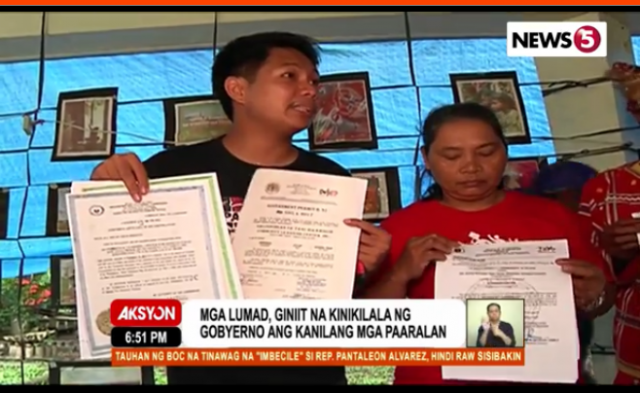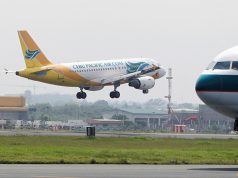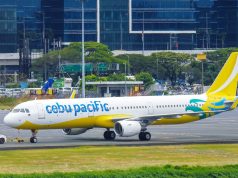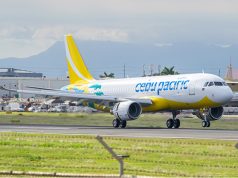
MANILA – The Davao City social services authorities and Cebu Pacific issued separate explanations Sunday on the flap created by the failure of a lumad contingent, including 23 minors, to board the 10:10 a.m. flight to Manila after Davao police grilled them as part of procedures against human trafficking.
The contingent missed its flight to Manila, where it was to attend a conference on the continuing harassment of lumad schools, but Cebu Pacific said it put the group on the next available flight with all charges waived.
The airline also denied allegations that its ground crew turned “hostile” on learning the passengers intended to attend a lumad conference of the Save Our Schools Network (SOS), which has reported a pattern of harassment of lumad schools by military authorities which accuse them of being used by communist fronts.
The group of 30-plus students and faculty members of lumad schools in Mindanao and other adult escorts were booked to take a morning flight to Manila to attend a conference of tribal learning centers at the University of the Philippines Diliman.
For her part, Davao City’s social services and development office chief said they have, as always, processed papers of minors seeking to travel as part of their mandate under the Children’s Code of Davao.
In a statement sent to InterAksyon, Malu Bermudo, CSSDO said, “The implementation of the Children’s Code of Davao is something that we always do everyday and this is to protect our children from possible incidents of trafficking.”
She added. Our partners in the crafting and the implementation of this code are various groups advocating the protection of children’s rights — including Kabiba,” the group involved in the Saturday incident.
“This is not about Martial Law. Plain and simple, this is about ensuring the interest and safety of our children,” Bermudo pointed out.
The Davao City Social Services and Development Office issued permits to travel to 10 lumad children aged 15 below as provided by the Children’s Welfare Code of Davao, according to Bermudo.
“The permit to travel were processed and released after necessary documents were provided. The documents included birth certificates and parental consent. We made sure that these papers were validated.
“At the airline counter, however, the children’s documents went through another verification process. Thus, we informed the airline and the airport police that the papers were verified.”
No hostility – airline
Cebu Pacific, for its part, said the lumad contingent was accommodated right on the next flight to Manila, with all charges waived.
“There was no hostility, it was just that we could not accommodate the group on their original flight,” owing to the automatic closing of the check-in system when the deadline for that flight (9:25am) had lapsed, explained Charo Logarta Lagamon, Corporate Communications director of Cebu Pacific.
The group reached the check-in counter by 9:40am, apparently because of the time it took to sort out the clearances when authorities did the regulatory double-checks against human trafficking.
In a text message to InterAksyon, Logarta-Lagamon said she spoke with the ground team in Davao, and that “what happened was that the group reached the check in at past 9:40am, when check in for their original flight closed at 9:25 a.m. Basically, the group got upset that they were unable to take the flight they booked. Per operating procedure, the ground staff could not check them into the original flight because system already closed, even if they insist.”
Nonetheless, “we booked them on the next available flight, with all charges waived,” she said.
“There was no hostility, it was just that we could not accommodate the group on their original flight,” the Cebu Pacific official added.
Lindy Trenilla, a social worker of the Children’s Rehabilitation Center in Southern Mindanao, earlier told InterAksyon by phone that they arrived at the airport at 9:15 a.m. and were checking in for their 10:10 a.m. flight when police officers approached and demanded they show a travel permit from the City Social Services Development Office.
The group of 35 –aside from her there were 23 minor and three adult students, aged 10 to 17 years old, two teachers, six parents from Kapalong and Talaingod towns in Davao del Norte — were on their way to attend the first national conference on Saturday, September 16, of the Save Our Schools Network, which counts organizations that run and support tribal schools.
Over the past years, indigenous people have complained that tribal schools, especially in Mindanao, have come under attack by state forces and military-backed militias that have occupied the learning centers and their communities, and threatened or even killed teachers and students, because authorities believe they advocate support for communist rebels.
Despite showing a permit to travel, which Trenilla said “we were aware we did not even need but secured just to avoid trouble,” the police personnel “continued to question us, even the children, and insinuating they were going to Manila only to join rallies.”
“They even questioned staff of the CSSD who went to the airport to vouch for us and confirm that they had issued the travel permit,” she added.









